
‘Ancient Future Medicine: Reimagining Traditional Medicines with Modern Science’ – Presented by Professor Marc Cohen
And later on:
‘What’s Your Oxymel?’ – A workshop presented by Professor Marc Cohen
Dr Marc is a medical doctor, university professor, author, poet, entrepreneur, wellness trailblazer and perpetual student of life, trying to co-create a culture of wellness. Dr Marc has been researching and practicing integrative medicine for more than 30 years and has spent more than half his career as a university professor teaching and researching wellness and contributing to the fields of nutrition, herbal medicine, acupuncture, yoga, meditation, health retreats, fermentation, detoxification, bathing, water quality, saunas, hot springs, elite athletic performance and flow states.
More
Dr Marc has published more than 100 peer-reviewed scientific papers and many books and technical texts on wellness and natural medicine including ‘Understanding the Global Spa Industry’ and the landmark text ‘Herbs and Natural Supplements: An Evidence-Based Guide’ along with the illustrated children’s books “Bing & Bang Begin” and “The Beautiful Mare and the Boy Who Gave Thanks”.
Dr Marc is a Past Board Member of the Global Wellness Summit, past President of the Australasian Integrative Medicine Association, founder of the Extreme Wellness Institute, Beautiful Water, and Pronoia Press, co-owner of Extremely Alive Wellness Tonics and Maruia Hot Springs and the Medical Director of the Peninsula Hot Springs Group, and Director of Research, Education and Product Development for Gather By. You can find him at www.drmarc.co.
Opening Keynote & Workshop Synopses
Keynote Synopsis: ‘Ancient Future Medicine
Our Stone Age ancestors used natural waters, contrast bathing, honey and herbs before they ever used fire. Honey is often considered the basis of all medicine and it is likely the first stone tools were used to gather nature’s most energy dense food. Electuaries (herb-infused honeys) and oxymels (honey-vinegar syrups) have been used in every traditional health system and endorsed by every religion and these ancient medicines are seen to be highly effective when examined through the lens of modern science. This presentation will review the research behind ancient therapies and how polyphenol-rich plants and ferments can have therapeutic effects that amplify the benefits of herbal preparations and positively impact our microbiome, metabolism and mental health. It will also outline how ancient medicine can be easily added to other interventions and guide us towards prevention based-lifestyles.
Workshop Synopsis: ‘What’s Your Oxymel?’ An interactive workshop
More
Explore the potent and delicious world of botanically infused oxymels, kombucha and jun fermentation. In this hands on and interactive session you will have the opportunity to learn about and create oxymels, try different blends and learn how to extemporaneously compound oxymels for your patients. Sound like your thing?
Bookings for this complimentary workshop will open in late April.
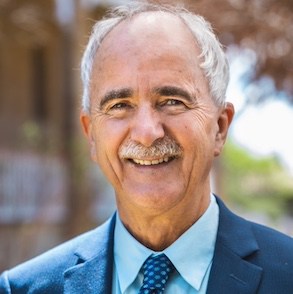
‘An Audience with Professor Kerry Bone – A life on the path of herbs’ – A fireside chat facilitated by Michelle Boyd
Professor Kerry Bone is the co-founder and innovation driver at MediHerb, where he serves as Director of R and D. He regularly lectures in Australia and overseas and is a prolific author, with seven published herbal medicine texts and over 40 scientific papers on herbal research. His most recent book, on Functional Herbal Therapy, was published in 2021.
More
In 2015 Kerry’s lifelong contribution to the field of herbal therapy was recognised with the Lady Cilento award, and in 2022 he was awarded for an outstanding contribution to herbal medicine by the National Institute of Integrative Medicine (Australia). Kerry maintains a busy herbal and naturopathic practice in Toowoomba, Queensland where he has been in continuous service for 38 years.
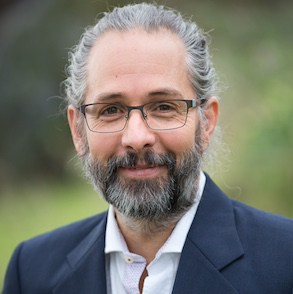
‘Enhancing Microbiota-Polyphenol Transformations to Improve Clinical Outcomes’ – A workshop by Dr Jason Hawrelak
Dr Jason Hawrelak is a researcher, educator, and naturopath with over 20 years’ clinical experience. He did his PhD examining the capacity of probiotics, prebiotics and herbal medicines to modify the gastrointestinal tract microbiota and teaches worldwide on the topics of microbiota modification and gastrointestinal health. He has published extensively in these areas, including 20 textbook chapters. Dr Hawrelak is on the Medical Nutrition Council of the American Society for Nutrition and is a Fellow of both the American College of Nutrition and the Naturopaths and Herbalists Association of Australia. Dr Hawrelak maintains a busy online clinical practice.
More
Dr Hawrelak has taught health professionals at both the undergraduate and postgraduate level for over 20 years. He teaches natural approaches to Gastroenterology within the University of Western States Master of Science in Human Nutrition and Functional Medicine program (Portland, Oregon). In addition, Dr Hawrelak is Chief Research Officer at ProbioticAdvisor.com, which offers a searchable database that enables easy, evidence-based prescribing of probiotic products. He also founded and coordinates the Microbiome Restoration Center, an online educational centre devoted to training health professionals to become microbiome clinicians, through his key courses – Naturopathic and Functional Medicine Approaches to Gastrointestinal Health and Advanced Microbiome Manipulation.
Presentation Synopsis and Key Take-away points
Many of our herbal medicines have polyphenols as their key active constituents. However, only 5% of polyphenols are absorbed intact – meaning that 95% of ingested polyphenols reach the colon where they interact with members of our microbiota. This interaction is what results in the release of the medicinally-active polyphenol byproduct. Assuming, of course, that you have the right components of the microbiota present – i.e., key polyphenol-converting genera. This session will focus on strategies we can use to enhance this polyphenol transformation in our patients, with the aim of improving clinical outcomes.
More
In this workshop we’ll be talking about two key polyphenols with vital importance in clinical practice – isoflavones and ellagitannins. But many of the tools and principles discussed are relevant to a broader range of herbal medicine polyphenols.
Key Take-Aways
- Discover what tools will help maximise the conversion of Ellagitannins to Urolithins (which, broadly speaking are neuroprotective, nephroprotective, and microprotective) and what the key genera involved in this conversion are.
- Learn the foods and herbs rich in ellagitannins and how urolithins can be used clinically.
- Learn how you can help your patients become equol-producers to get more therapeutic benefit from isoflavone ingestion.
- Gain an understanding of what interventions you can use to enhance equol-production in your equol-producing patients.
Bookings for this complimentary workshop will open in late April.

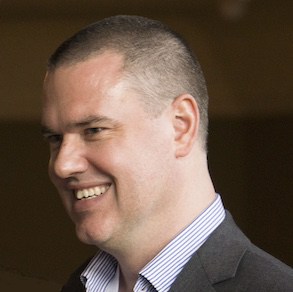
‘From Drops to Lots – Perspectives on Herbal Dosage’ – A panel discussion featuring Sally Kingsford-Smith & Ian Breakspear facilitated by Hannah Boyd
Sally Kingsford-Smith is a Dorothy Hall trained herbalist and reiki master, who is happiest when combining her love of people, plants, and tissue salts in her practice, and as an educator. Stepping into her crone years now, she feels that sharing the knowledge she’s gained in life is incredibly important.
Ian Breakspear has more than 30 years of experience as a herbalist and naturopath, across diverse areas of the profession including clinical practice, education, research, therapeutic product design, and regulatory affairs. Currently a Senior Lecturer in Herbal and Naturopathic Medicine at Torrens University Australia, Ian also works as a consultant to industry, is the Chair of the NHAA’s Board Member Advisory Committee, an Expert Contributor to the Olive Wellness Institute, and a practicing clinician specialising in helping patients with cardiovascular disease.
More
Sally Kingsford-Smith continued …
Sally is passionate about continuing Dorothy’s legacy for all current and future herbalists through the online course she has developed and through mentoring Estuary Learning members. She brings her own clinical experiences into all aspects of her work, including regular appearances as a presenter at the annual Wise Women Gatherings, and the Estuary Learning Earth Medicine Conferences.
Ian Breakspear continued …
Ian’s research has focused on herbal safety, quality and efficacy, with his ground-breaking study on the phytoequivalence of Australian olive leaf extracts – published in late 2020 – helping to redefine practitioner understanding around the effective use of this herbal medicine. In 2021 Ian received the Bioceuticals Integrative Medicine Aware for Contribution to Research & Education. In 2023 he received the Australian Journal of Herbal & Naturopathic Medicine Article of the Year Award, and was also honoured with Life-Membership of the NHAA.
Ian confesses to being an extra-virgin olive oil connoisseur/snob and is a proponent of having high doses daily!
Presentation Synopsis and Key Take-away points
The art and science of herbal dosage – or posology – is both complex and controversial. But the controversy can sometimes be an obstacle to practitioners exploring the validity of different approaches. The wonderful complexity of plant medicine, combined with the individuality of our patients, requires that we have a nuanced conversation about dosage, consider the different approaches, and embrace flexibility, in order to offer the clinical outcomes our patients deserve.
Key Take-Aways
- Approaches to herbal dosage can vary widely
- Attendees will gain an understanding of the principles of drop dosages, heroic dosages and everything in-between
- The aim is to give attendees the confidence and inspiration to try different approaches to dosing
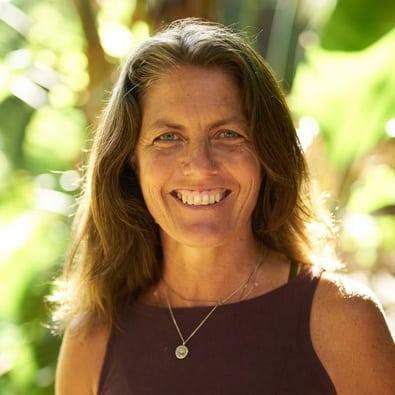
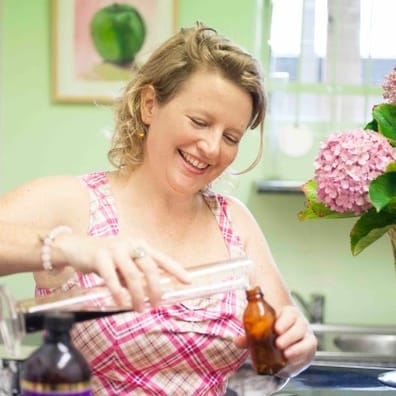
‘Tools of The Trade – How to Percolate, Macerate, Infuse and get Inspired’ – A workshop by Renae Scott and Jo Morgan
Renae is a naturopath and herbalist with a Masters Reproductive Medicine (UNSW) and Health Science Herbal Medicine (UNE). Renae opened an apothecary in Canberra and has a clinic space enabling both in clinic consults and over the counter. An advocate for plant medicine and enabling access and affordability of naturopathy and herbal medicine for all, blending traditional practices with research. Renae has a small allotment where she grows some medicinal plants – fresh plant medicine straight to the apothecary. Renee has established the NHAA ACT Chapter.
Jo has been practicing as a herbalist for 20 years. She set up Jo’s Herbadashery, a modern day apothecary on Sydney’s Northern Beaches, in 2013. Her focus is on making her own herbal remedies (especially herbal bitters!) and giving her community access to quality herbal medicines. Most recently she has been learning medical astrology with Kira Sutherland.
More
Presentation Synopsis and Key Take-away points
Jo and Renae pave the way for you to reconnect with your plant medicines. Be inspired with practical tips on how to macerate, percolate, grind and infuse herbs in your own dispensary. Jo and Renae will discuss the tools of the trade and guide you from the raw materials through to your end product, the herbal extract.
Making your own extracts facilitates a connection with the plants and your medicines. There will be a hands-on demonstration on how to percolate and attendees will take home an extract sample. There will be tastings to compare commercially available products with some of the extracts we have made in our apothecaries. Let’s brainstorm what herbal remedies might be best for you to make in your dispensaries.
Key Take-Aways
- This workshop will inspire you to make your own medicines
- Tips on where to get your equipment and raw materials so you can start straight away
- Learn what you can and can’t make, and dispense – TGA rules
- What herbs might be good to percolate, macerate and infuse
- We’ll share the mistakes we’ve made along the way
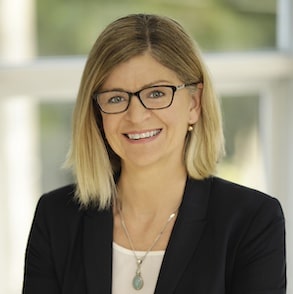
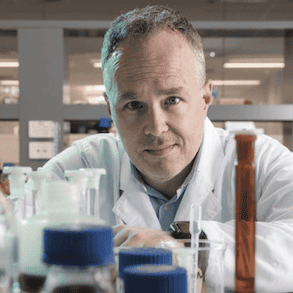

‘Practicalities of cannabis and how our patients access support’ – A panel discussion featuring Dr Janet Schloss, Justin Sinclair and Prof. Marc Cohen facilitated by Kathleen Murphy
Dr Janet Schloss is a Clinical Research Fellow at the National Centre for Naturopathic Medicine, Southern Cross University. Janet is an accomplished researcher with extensive experience in coordinating clinical trials. In addition to her academic career, Janet is a practicing clinical nutritionist and naturopath with over 20 years’ experience.
Justin Sinclair has been involved in researching and exploring herbal medicines from both a scientific and traditional perspective for over 20 years. He has taught herbal medicine subjects at various colleges since 2002, and has been very active in lobbying and advocating for the return of cannabis as a medicine in Australia since 2014.
Prof. Marc Cohen is a medical doctor, university professor, author, poet, entrepreneur, wellness trailblazer and perpetual student of life, trying to co-create a culture of wellness. Dr Marc has been researching and practicing integrative medicine for more than 30 years and has spent more than half his career as a university professor teaching and researching wellness and contributing to the fields of nutrition, herbal medicine, acupuncture, yoga, meditation, health retreats, fermentation, detoxification, bathing, water quality, saunas, hot springs, elite athletic performance and flow states.
More
Dr Janet Schloss continued …
Following the completion of her doctorate in 2015, Janet has focused her research on supporting people who have cancer through studying the use of complementary medicines to assist side effects of cancer treatments. She has completed a number of ground breaking studies, has over 70 publications and now focuses a lot of her research on medicinal cannabis.
Justin Sinclair continued …
Justin sits on the board for the Australian Medicinal Cannabis Association, is on the steering committee for Cannabis Clinicians Australia, leads the scientific committee for United in Compassion (Medicinal Cannabis advocacy & support group) and is on the advisory group for the Psychae Institute.
He was also an Executive Director and Examiner with the NHAA, and was part of the original Board Member Advisory Committee. Justin currently works as Chief Scientific Officer for the Australian Natural Therapeutics Groups, a vertically-integrated medicinal cannabis company, and prior to this, was a research fellow at NICM Health Research Institute at Western Sydney University. Justin is currently finishing his doctoral studies investigating the safety, tolerability and effectiveness of medicinal cannabis for the pain and associated symptoms of endometriosis, and has published 2 book chapters and 24 journal articles on the topic of cannabis.
Prof. Marc Cohen continued …
Dr Marc has published more than 100 peer-reviewed scientific papers and many books and technical texts on wellness and natural medicine including ‘Understanding the Global Spa Industry’ and the landmark text ‘Herbs and Natural Supplements: An Evidence-Based Guide’ along with the illustrated children’s books “Bing & Bang Begin” and “The Beautiful Mare and the Boy Who Gave Thanks”.
Dr Marc is a Past Board Member of the Global Wellness Summit, past President of the Australasian Integrative Medicine Association, founder of the Extreme Wellness Institute, Beautiful Water, and Pronoia Press, co-owner of Extremely Alive Wellness Tonics and Maruia Hot Springs and the Medical Director of the Peninsula Hot Springs Group, and Director of Research, Education and Product Development for Gather By. You can find him at www.drmarc.co.
Presentation Synopsis and Key Take-away points
Medicinal cannabis (MC) prescriptions and adoption has increased expediently year on year in Australia since legalisation in 2016. Currently, Government regulation of MC categorises delta-9-tetrahydrocannabinol (THC) to Schedule 8 and cannabidiol (CBD) to Schedule 4, albeit recent changes to allow CBD as a Schedule 3 have been enacted, although there is no registered Schedule 3 drugs to date. Although naturopaths and herbalists are not legally able to prescribe MC products at this stage, they can provide great support for patients who have been prescribed it.
More
Knowing the plant, the gender differences and support services you can recommend is extremely important as more patients are likely to be prescribed this herb in different forms. This session covers the practicalities of MC and what is prescribed, what areas you can support your patients and other important aspects you need to know, such as side effects and drug interactions.
Key Take-Aways
- Cannabis types, cannabinoids, terpenes and conditions that it’s being prescribed
- Cannabis can react differently in men and women: Gender differences
- The different delivery systems prescribed and the administration
- The dosing of different delivery methods
- The side effects and contraindications of cannabis
- Associated drug interactions of medicinal cannabis
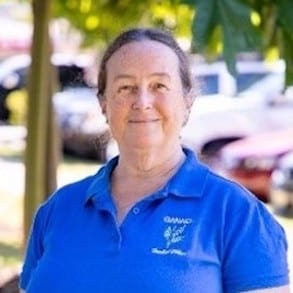
‘Herbs for Hope: Stories of Community Herbalism’ – Presented by Kerrie Oakes
Kerrie Oakes has been a practising herbalist since 2017. She was chapter co-ordinator for the South-East Qld chapter of Herbalists without Borders, and a member of the NHAA, the American Herbalists Guild, the International Society for traditional, Complementary and Integrative Medicine Research, the Academy of Integrative Health & Medicine, and Integrative Medicine for the Underserved.
Her interests are in equitable and affordable access to natural medicine, the place of herbal medicine within the primary healthcare sector, and the role of community in service provision.
More
She Holds graduate and post-graduate qualifications in Western Herbal Medicine, Health, Education and Community Welfare. She has local, state and federal experience in community development, youthwork, child protection, eDemocracy, policy making and disaster management. Currently she manages the Somerset Community Supported Herb Clinics in Southeast Queensland and is an inaugural board member of the Somerset Health Hubs Cooperative. She is undertaking a PhD at the National Centre for Naturopathic Medicine examining the concept of community-supported herbalism and cooperative models of healthcare.
Presentation Synopsis and Key Take-away points
Herbal medicine is the second-most used form of Traditional and Complementary Medicine (T&CM) amongst member states of the World Health Organisation. Herbalists are using their skills and knowledge in a range of situations – including recovery from disasters, supporting displaced people, and promoting restorative justice. The key principles of herbal medicine, and the integral part herbalists play in their communities give practitioners a strong base for facilitating community-based, and managed, healthcare.
Community based healthcare provides affordability, equality and healthcare justice and an avenue for people to participate in planning and implementing healthcare. Community-focused models of practice are consistent with the holistic philosophy of herbal medicine. However, little is known about the extent to which herbal medicine is included within community models of healthcare.
Kerrie will share stories of models of community herbalism from across the globe to draw out characteristics of community herbal medicine practice common regardless of the location or situation.
Key Take-Aways
- Considerations for establishing a community herbal practice
- Examples of community herbal practice
- The benefits of community in herbal medicine practice
- Looking for unexpected collaborators and partners
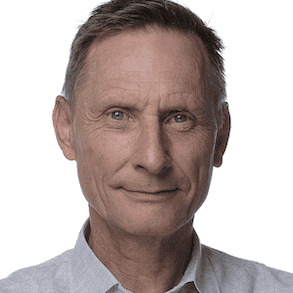
‘Translational Medicine for Natural Products’ – Presented by Dr Michael Thomsen
Dr Michael Thomsen is a herbalist and naturopath. He has a Master of Science, Graduate School of Integrative Medicine, Swinburne University, and a PhD from the Department of Medical Sciences, Sydney University Medical School.
Michael has extensive industry experience as past technical manager of leading herbal medicine companies in Australia.
More
He is the author of the popular Phytotherapy Reference Des, now in its fifth edition having sold 16,000 copies worldwide, and the recently launched companion web app featuring herb-drug interactions and clinical research of all herbal medicines used in Australia
His company Eusano Healthcare, has pioneered whole body and local hyperthermia, photobiomodulation and infrared healing in Australia, importing and distributing ARTG listed medical infrared and hyperthermia devices made in Germany.
Presentation Synopsis and Key Take-away points
In this session, Michael will review the challenges facing the application of translational medicine to natural product research and clinical practice.
Translational medicine connects basic medical research with clinical treatment. It breaks the barrier between basic research and clinical medical problems and shortens the distance from laboratory to clinical use.
The compartmentalisation within scientific disciplines and the extensive use of modern scientific methods in natural product research have led to a significant disconnect between preclinical research, human studies, and clinical practice. This includes areas such as authentication, quality control, pharmacology, and manufacturing of natural products. Translational medicine may also include the interpretation and reappraisal of traditional herbal medicines and practices.
In this practical presentation Michael will provide practitioners with a method of translating preclinical and clinical research into clinical practice and provide specific examples that illustrates the importance of understanding translational medicine for natural products.
Key Take-Aways
- Understand the concept of translational medicine
- Learn how to apply translational medicine principles when reviewing published studies
- Learn how to apply this learning to your prescriptions
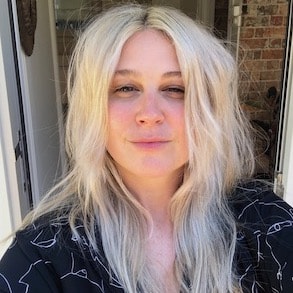
‘Sounds from the Ground – A Herbal Soundscape’ – Presented by Amy Sartorel
Amy is a recent graduate of the Bachelor of Health Science (Naturopathy) completed in 2022 at Torrens University, and the winner of NHAA Student of the Year 2023. She is a part of the SydHerbs NHAA Chapter organising committee and has written a peer-reviewed journal article together with Torrens academics on Vitex agnus-castus and its positive effects for women experiencing premenstrual syndrome.
More
Amy has presented her research on Vitex agnus-castus at the NHAA Naturopathic Symposium in May 2023, and the AIMA (Australasian Integrative Medicine Association) conference December 2023.
Her future research endeavours include Naturopathic dermatology, healthy ageing, and plant sound therapy.
Amy has recently been accepted into the Master of Advanced Naturopathic Medicine at Southern Cross University and is currently running her Naturopathic clinic in the Inner West suburbs of Sydney.
Presentation Synopsis and Key Take-away points
In this presentation, participants to listen to the sound frequencies of 5 common medicinal herbs via a live bio-sonification device, a nonintrusive technology that translates the natural biorhythms of living herbs into sound. Through sensors placed on the herb’s leaves, flowers, stems, and roots, we can detect micro fluctuations in conductivity, and turn these events into data, which is then translated and played through a synthesizer.
The plants are playing the music in real time, like a pianist performing on piano, the herbs are the virtuoso. The presentation will feature photos, short videos, and soundscapes of the processes involved in harvesting the herbal sounds.
Guests will have the opportunity to hear plants playing live during the presentation and are invited to participate in a 5-minute meditation at the end of the presentation curated and produced by sound artist Neal Sutherland. Join us for an immersive and sensory experience as the herbs we prescribe as Naturopaths speak to us in their language via the gift of sound.
Key Take-Aways
- All living things, including medicinal plants vibrate at a certain frequency, creating an energetic resonance
- Sound frequencies are as ancient as the Earth itself, and as sensory beings, we can use sound frequencies to help clear energetic blockages, re-harmonise our bodies, and bring a state of ease
- Plant medicine could theoretically enhance healing via sound wave therapy
- Are the sounds we hear the plants communicating to us through language? Is this a way humans can collaborate with non-human organisms and beings to gain the perspective of the ‘other’.
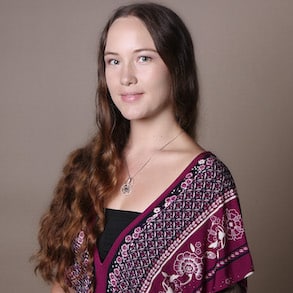
‘Evolution of Practice, Maintenance of Tradition: the CITE Framework to support evaluation and integration of traditional knowledge with evidence-based practice’ – Presented by Dr Hope Foley
Hope is a postdoctoral research fellow at UTS:ARCCIM, where she previously completed her PhD investigating person-centred chronic illness care in complementary and integrative medicine. She has worked on a number of research projects relating to naturopathy, and traditional, complementary and integrative medicine more broadly.
More
Her work explores the role of holism, traditional knowledge and health promotion in contemporary health care settings. Hope also teaches at the National Centre for Naturopathic Medicine (Southern Cross University), and is co-chair of the World Naturopathic Federation Environmental Health Committee. Her current interests extend to health promotion, planetary health, and the importance of the healing relationship between humans and the natural environment.
Presentation Synopsis and Key Take-away points
Traditional medicine systems are living – evolving in response to changing needs and contexts – which sustains the continued relevance and value of herbal medicine and naturopathy. Traditional knowledge provides a rich evidence source within these evolving professions, despite its absence from dominant models of evidence-based practice. While traditional knowledge remains integral to herbal medicine, naturopathy and health care more broadly, there are few resources supporting the use of traditional knowledge in contemporary settings.
The Contemporary Implementation of Traditional knowledge and Evidence in health (CITE) framework arose in response to calls from practitioners for greater recognition and integration of traditional knowledge. Developed with practitioners and other experts from traditional medicine and health care contexts, CITE explores what is important during the translation and use of traditional knowledge. The framework outlines guiding principles to bridge tradition with evidence-based health care, appropriate approaches to critical appraisal of traditional knowledge sources, and criteria to consider when applying traditional knowledge in contemporary settings.
CITE offers an accessible tool to enhance the impact of traditional knowledge from herbal and naturopathic medicine on practice, education, research and policy-development, ensuring health care remains relevant to our communities while maintaining the integrity of philosophy, ethics and traditional roots.
Key Take-Aways
- Traditional knowledge continues to play an integral role in the narrative and practice of herbal and naturopathic medicine as they evolve over time
- Traditional knowledge sources can be integrated with evidence-based practice in appropriate ways that uphold the integrity of both systems
- The CITE framework provides a novel tool to guide the evaluation and application of traditional knowledge in contemporary settings
- CITE was developed in collaboration with practitioners and other experts in traditional medicine and health settings, ensuring relevance and value to users of traditional knowledge.
- Conscious and critical engagement with traditional knowledge when translating to contemporary settings is important to ensure optimal outcomes in practice, education, research and policy
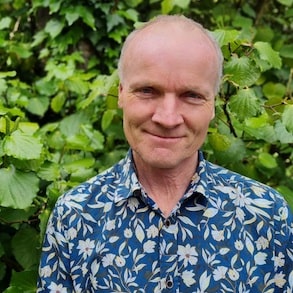
‘Plant Sustainability: Future Challenges for Herbal Medicine’ – Presented by Phil Rasmussen
Phil is a practicing Medical Herbalist, pharmacist and researcher with 30 years of broad-ranging experience in clinical practice as well as industry. His career has included founding, managing and building a GMP-certified herbal medicine manufacturing company, and he is a regular presenter to practitioner and industry audiences in Aotearoa New Zealand and overseas.
More
Phil is an Honorary Lecturer in Pharmacy at the University of Auckland, and a founding director of the industry body, Natural Health Products New Zealand. He is also a longstanding advocate for statutory regulation of natural health practitioners, and established and ran a herbal detoxification service for the Auckland Regional Alcohol and Drug Services, from 1993 to 1997. Phil served as President of the New Zealand Association of Medical Herbalists from 2018 to 2021.
Phil’s interests include native plants, medicinal ‘weeds’, the human connection with the natural world, and plant sustainability. In recent years he has been involved with trying to facilitate increased patient access to phytotherapy services, and establishing a stronger commercial medicinal plant growing sector, in Aotearoa New Zealand.
Presentation Synopsis and Key Take-away points
The world’s population is growing and demand for medicines derived from plants continues to increase, while at the same time the effects of Climate Change are becoming more apparent. Together with geopolitical tensions, viral pandemics and other human impacts, these are contributing to mounting supply chain pressures for many of our medicinal plants.
Medicinal plant sustainability is highly relevant to natural health practitioners, as the health of our plants, their growing habitats and those who harvest and supply them, all impact on our ability to provide effective and safe treatments for our patients.
As is integral to all forms of Traditional Medicine, naturopaths and medical herbalists should ensure a long term, transparent and intergenerational approach to sustainability is incorporated within our clinical practice and usage of plant derived medicines.
In this presentation Phil will explore key challenges facing our ability to continue to access healthy medicinal plants, and provide some insights and perspectives from growers, wildcrafters and manufacturers. He will also discuss the situation for several at risk species, and attempt to provide some useful tools to enable each of us to help maintain a reliable and healthy supply chain in the future.
Key Take-Aways
- An enhanced understanding of the different ways in which the majority of the plants used in herbal medicine manufacturing are sourced
- An updated summary of the current status of several medicinal plants whose survival is deemed to be At Risk
- Information and confidence to use certain endemic introduced plants as substitutes for various potentially At Risk species imported from overseas
- Barriers and opportunities for greater cultivation of medicinal plants, within Australia and Aotearoa New Zealand
- The interconnectedness of multiple human activities and the natural world, and the need to conserve, replenish and sustain our environment as possible guardians, to protect our precious plants and safeguard our future access to them
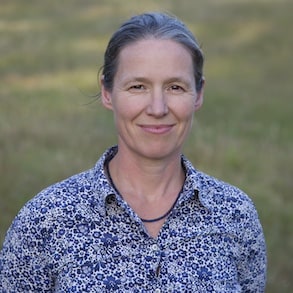

‘Thoughts on Brokenness versus Resilience’ – Presented by Dawn Whitten and Rachel Arthur
Dawn Whitten is a clinician, educator and researcher. She has a broad-base of clinical experience with a focus on women’s health through pregnancy and beyond, and infant and toddler health, and has been in clinical practice for twenty years.
Rachel Arthur has over 20 years experience in the clinic and the ‘classroom’ as one of the top practitioners and educators in integrative nutrition and health. She has attracted a large following of clinicians who value her outstanding independent, unbiased education and leadership.
More
Dawn Whitten continued …
Dawn is published in the peer-reviewed literature and has contributed to textbook chapters in the area of breastfeeding and infant health. She regularly presents at both National and International Conferences and Online Events.
Dawn is part of Goulds Natural Medicine, a busy apothecary, clinic and associated herb farm in Tasmania. She teaches two units on Evidence-based Complementary Medicine at the University of Tasmania. Alongside Dr Jason Hawrelak she is co-founder of the Microbiome Restoration Center, an organisation dedicated to providing unbiased continuing professional education to clinicians relating to gastrointestinal and microbiome health. She is the Early Life Health Lead at the Center.
Rachel Arthur continued …
With a particular interest and highly developed skill-set in diagnostics, Rachel is particularly known for developing this in others – from scratch or by rapidly growing their existing knowledge base. Rather than always reaching for expensive, pay out of pocket functional testing, Rachel opens up a new world for many, by maximising the insights and understanding practitioners can obtain from mainstream pathology results for each patient.
In this way, she endeavours to truly build the bridge we can all walk across that connects mainstream medicine and naturopathy, nutrition and integrative health.
Presentation Synopsis and Key Take-away points
Does the current application and practice of naturopathic medicine pit one of our underpinning principles unnecessarily against the others? It may be argued, that, ‘to identify and treat the cause’, has come to excessively dominate over others such as, ‘Vis medicatrix naturae’ and ‘Support the body’s vital force’. What ensues is a model of medicine that pursues the ‘root cause’ of patients’ current presentations at all costs. Accordingly, under that banner, this may motivate infinite investigations in pursuit of ‘answers’ that elude both practitioner and patient and ultimately communicate, either implicitly or explicitly, that they are primarily defined by their ‘brokenness’.
While the original principle remains sound, when not balanced by the other underpinning tenets as described, is it possible that it has the potential to, at worst, cause harm, & at best, limit the full potential of naturopathic medicine? In our holistic workup are we giving adequate consideration to patients’ strengths, all the evidence in support of an innate biological resilience and, in turn, their vital force? And how might we as a profession move towards taking care to notice and elevate these principles to restore balance.
Key Take-Aways
- Consider how our contemporary practice method of seeking ‘the cause’ may at times perpetuate patient fears and a perception of ‘brokenness’ that negatively impacts wellbeing and health-related choices they may make.
- Examine the science of the added therapeutic value of ‘learned hopefulness’ or ‘cognitive hope’
- Outline common illustrations of patient biological resilience that we can bring to the front for both practitioner and patient
- Consideration for how our core Naturopathic principles, in particular ‘find the cause’, ‘first do no harm’ and ‘Vis medicatrix naturae‘, offer us an anchor point that then requires translation into a contemporary context
- Reflections on how we can strike the balance when identifying ’cause’ without setting the patient up to be focussed on their ‘brokenness’ with examples that occur commonly in practice
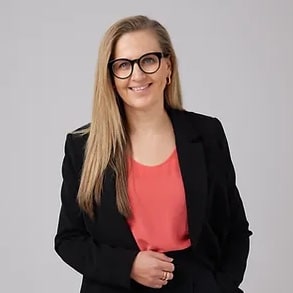
‘Understanding Contemporary Herbal Medicine for Hormonal Health’ – Presented by Rhiannon Hardingham
Rhiannon is an experienced fertility naturopath, presenter, practitioner educator, mentor and author. As a practitioner Rhiannon is committed to the successful integration of natural and conventional medicine, regularly working alongside Melbourne’s top fertility doctors to achieve the best outcomes for her patients.
More
As testament to this, Rhiannon is routinely invited to present on the topic of collaborative patient care to medical specialists and naturopaths alike. After over 18 years clinical experience in the area of reproductive health, Rhiannon provides professional mentoring and education in both group and individual settings. Her education style is approachable yet thorough, attracting practitioners from all areas of functional medicine, as she assists them to best understand hormone, fertility and pregnancy cases through expertise in nuanced pathology interpretation and herbal and nutritional medicine prescription.
Presentation Synopsis and Key Take-away points
Herbal medicines have long been used to optimise hormones, fertility and pregnancy outcomes. Whilst the contemporary herbal medicine practitioner has a deeper understanding of the pathophysiology of various conditions than their forbears, and access to herbs from all around the world, many are left feeling overwhelmed by the potential of the dispensary at hand.
More
In this presentation Rhiannon discusses her approach to clinical herbal medicine prescription and education, bringing a nuanced understanding of specific indications, and sometimes more importantly contraindications, helping practitioners to achieve reliable results for their patients in the reproductive medicine space.
Key Take-Aways
- Understanding a patient’s individual hormone profile as opposed to their diagnosis is essential for effective use of herbal medicines
- The key role of understanding the mechanism of action and synergistic potential of herbal medicines
- The benefit of nuanced herbal medicine prescription for hormonal conditions
- The potential risks of inappropriate herbal prescriptions for some conditions

‘Rewilding – The relationship between environmental biodiversity, microbial richness, and human health” – Presented by Jessica Bush
Jessica is a naturopath working in Hobart, Tasmania. She was first attracted to naturopathy by its principles, treating the whole person, and prevention is better than cure. With the growing scientific understanding of the role microbiota play with human physiology, she has expanded her view on what makes up a whole person and pursued a deeper understanding of its impact and potential for disease prevention within individuals, and the population as a whole.
More
In 2018, she moved to Hobart to work with Dr Jason Hawrelak as a part of his Gastrointestinal Fellowship, where she spent four and a half years assisting clients with gastrointestinal and microbiome related conditions. Seeing first hand the impact of the microbiome on human health and disease, she grew increasingly passionate about protecting and supporting microbial health.
Jessica now understands that the health of the body is not separate to the health of the planet, and has branched out to create her own business, Nacelium, which combines clinical naturopathy, health education and environmental protection.
Presentation Synopsis and Key Take-away points
Environmental destruction, urban sprawl and loss of biodiversity are changing the environmental microbiome. Humans have developed in symbiosis with environmental microbes for millenia, however the loss of biodiversity in the natural world, and fewer interactions between humans and biodiverse environments is fracturing the environmental-microbiome-health relationship, leaving our population, community and individual health at risk.
More
Microbes are key to the health of the planet. The ecological impact of the microbiota spans from water purification, nutrient recycling, and carbon sequestration to supporting plant and mammalian growth.
Biodiverse ecosystems offer a rich composition of beneficial microbes needed to assemble and support human microbial communities.
Alteration to the land and ocean’s environment by human development has led to a significant loss of the world’s plant and mammal biomass. Urban sprawl, monocrop farming, indoor living and deforestation all have significant consequences on environmental microbial communities.
The impact of urbanisation and city living has encouraged a lack of exposure to diverse beneficial microbes in the environment, resulting in poor health and immune outcomes within these populations.
Incorporating biodiverse green space in urban development for communities and increasing individual exposure to natural biodiverse environments are strategies to improve environmental-microbiome-health outcomes.
Supporting microbial health and diversity for human health and wellbeing is not separate to preserving biodiverse environments.
Key Take-Aways
- Individual and community health is impacted by he microbial worlds in which they live
- Why we need to support microbial diversity and richness, especially in urban environments
- Aerobiomes and their impacts on human health
- Where to start building exposure to biodiverse environments

‘Cannabis ethnopharmacology: From the Neolithic to Now’- Presented by Justin Sinclair
Justin has been involved in researching and exploring herbal medicines from both a scientific and traditional perspective for over 20 years. He has taught herbal medicine subjects at various colleges since 2002, and has been very active in lobbying and advocating for the return of cannabis as a medicine in Australia since 2014.
Justin sits on the board for the Australian Medicinal Cannabis Association, is on the steering committee for Cannabis Clinicians Australia, leads the scientific committee for United in Compassion (Medicinal Cannabis advocacy & support group) and is on the advisory group for the Psychae Institute.
More
He was also an Executive Director and Examiner with the NHAA, and was part of the original Board Member Advisory Committee. Justin currently works as Chief Scientific Officer for the Australian Natural Therapeutics Groups, a vertically-integrated medicinal cannabis company, and prior to this, was a research fellow at NICM Health Research Institute at Western Sydney University. Justin is currently finishing his doctoral studies investigating the safety, tolerability and effectiveness of medicinal cannabis for the pain and associated symptoms of endometriosis, and has published 2 book chapters and 24 journal articles on the topic of cannabis.
Presentation Synopsis and Key Take-away points
Join Justin Sinclair for a journey that starts in the neolithic period and ends in the present day, and tells a story of the use of cannabis as a medicine across numerous cultures. Our earliest evidence talks of the use of cannabis as an analgesic, hypnotic, anxiolytic and anti-epileptic – all pharmacological actions that are still in use today, but with more robust evidence to support it.
More
From the Tomes of ancient China, India, Greece and Persia, all the way through to cannabis being introduced to Western medicine by Irish physician William O’Shaughnessy in 1841, together we will examine this unique herbal medicine’s therapeutic actions and highlight the may challenges that still face it to this day (patient access, stigma, drug driving laws). Lastly, we will cover off on some important clinical information for herbalists and naturopaths that may be seeing patients utilising medicinal cannabis in practice, including current regulations, the various access pathways and patient numbers, potential drug interactions and side-effects.
Key Take-Aways
- Cannabis has a long, diverse and rich history as a medicine
- Whilst legal in Australia since 2016, medicinal cannabis still faces several challenges including stigma, product costs, and outdated drug driving laws
- Medicinal cannabis can only be prescribed by medical practitioners in Australia
- Clinicians need to be cognisant of the potential side-effects and interactions of medicinal cannabis, both with pharmaceutical medicines and our own herbal medicines.
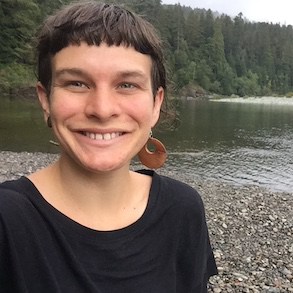
‘Growing a resilient future of herbal medicine’- Presented by Monica Francia
Monica Francia (she/her) lives and works on the lands of the palawa people of lutruwita. She is a queer Naturopath, Nutritionist and Medicinal Herb Farmer balancing her time between clinical practice, working at Goulds Natural Medicine and growing and making medicine at Rocky Top Herbs. She is the chapter coordinator for Hobart Herbalists Without Borders, a non-profit organisation who run 3 Free Community Naturopathic Clinics per month in lutruwita / Tasmania as well as regular community events.
More
She has a strong sustainability and social justice lead practice and is passionate about improving access to Naturopathic Medicine. She works predominantly supporting folks with Menstrual and cycle health and charges using a sliding scale accessibility model. She runs courses, workshops and talks on herbal medicine making and menstrual health and provides professional education and mentorship around Community Herbalism and LGBTQIA+ inclusive practice.
Presentation Synopsis and Key Take-away points
How do we ensure access to good quality herbal medicine into the future? As we face climate change, pandemics, conflict, and global supply issues, how do we ensure that as a profession we are resilient in practicing our medicine and caring for our communities?
In 2021 we started Rocky Top Growers Collective, a farming co-op just outside of nipaluna / Hobart. In this presentation I share our experience of setting up the farm, the values that underlie it and why we felt the need to grow medicinal herbs locally in the current socio-political climate.
More
Folks around Australia and the world are creating innovative, connected supply chains, and thinking outside the box to provide locally grown, quality medicine without exploitation or a large carbon footprint. Do we need to start asking more questions about the herbal trade industry?
As a profession we can build a localised, resilient, sustainable medicine system together. My hope for us as Naturopaths and Herbalists, is not to lose touch with the plants, the soil they grow in and the ecosystem that we all exist within together- growers, practitioners, and patients.
Key Take-Aways
- The ways in which different communities around Australia and the world are innovating to improve access and connection to our medicinal plants.
- What a more connected, localised medicine system could look like in Australia.
- How are we assessing quality and efficacy in our raw herbs and extracts?
- The benefits of knowing your grower and knowing your medicine.
- What questions we should be asking when we’re sourcing herbs.
- What we can learn from the food justice and sustainability movement.

‘Spice & Savour, Fragrance & Flavour’- A workshop presented by Gem Nettle
Her reservoir of knowledge springs from diverse corners of the globe, where she has resided, studied, and absorbed teachings from esteemed figures in the realms of herbal and energetic medicine. Gem’s transformative pilgrimage along the Camino De Santiago stands as a testament to her individual spiritual quest, weaving connections between the ancient and the modern along the hallowed trails beneath her.
She’s scaled mountains in the company of the Bakhtiari Nomads within Iran’s Zargos Mountains. She’s been educated in Aboriginal spirituality and Women’s Lore under the guidance of Minmia, a Koori Wirradjirri Lore-Woman, which underscores her dedication to understanding indigenous wisdom.
More
Immersing herself within a vibrant community on a biodynamic farm nestled deep within Finland’s verdant forests, Gem cultivated a profound connection with the plant realm on an energetic plane. Across her traverses of Northern Africa, Gem imbibed the wellspring of traditional wisdom shared by herbalists throughout the Middle East. Her sojourn through the southern realms of Africa unveiled the bounty of native indigenous foods and plants, further enriching her holistic understanding of nature’s provisions.
The culmination of her journey brought her to embrace the healing potential of medicinal herb gardens, under the tutelage of master herbalists in Tasmania. Gem Nettle’s life path exudes a synthesis of deeply spiritual insight and grounded practicality, inspiring a tapestry of profound healing knowledge derived from her global odyssey.
Workshop Synopsis
More
- Sensory Elevation: Gem will guide us through an experiential journey, awakening the senses to the rich tapestry of aromas and flavours that herbs possess. From the delicate scents of blossoms to the bold notes of spices, participants will gain a heightened awareness of the diverse sensory profiles within herbs.
- Herbal Alchemy: Gem will share her expertise in herbal alchemy, showcasing how the alchemy of herbs can yield an array of aromatics and flavours. Participants will learn hands-on techniques for extracting and preserving these elements, offering practical insights that can be integrated into their clinical practices.
- Culinary Herbalism: Delving into the intersection of nutrition and herbalism, Gem will explore the concept of culinary herbalism. Discover how herbs can be incorporated into culinary creations to enhance both the nutritional value and sensory appeal of meals. Gem will share recipes and tips to empower clinical naturopaths and herbalists in utilising herbs as both medicine and culinary delights.
Bookings for this complimentary workshop will open in late April.

‘Infusions: A Lost Art?’- Presented by Michelle Boyd
Michelle Boyd MHSc WHM (UNE), BHSc Nat (ACNM), Grad Cert HEd (UQ), FNHAA, MIMS, MACNEM
Herbalist, Naturopath, Educator & Writer
Michelle has been in private practice since 1996 and is skilled in Clinical Herbal Medicine and Naturopathy, Integrated Pharmacology, and Pharmacovigilance. For 20+ years, she has been involved in the education of her peers and students; having successfully coordinated and created professional educational materials and events, presenting at various seminars and conferences during this time.
More
Michelle has lectured undergraduate students since 2003 (currently Torrens University Australia) and is a contributing author in Clinical Naturopathy An evidence-based guide to practice (currently 3rd ed).
Presentation Synopsis and Key Take-away points
The American Eclectic Materia Medica and Therapeutics (1863) reflected the practice of the day, declaring, without doubt, herbal teas were most eligible forms of administering vegetable remedies as they ‘yield either a part or all of their virtues to water infusion’. And, although much ‘tea’ was laughed at, ‘this practice has proven eminently successful’ with the added advantage ‘that the patient will receive sufficient [liquid], a matter that is of the first importance in the treatment of many diseases’.
Herbal aqueous preparations, efficiently extract water-soluble plant chemicals, particularly essential oils, and saponins enhance the bioavailability of other, less-soluble compounds. Therapeutic infusions also have added benefits not gleaned from herbal liquid extracts and solid dose forms. The ritual of preparing a herbal tea, savouring the aroma and slowly sipping to ultimately experience the soothing, warm sensation that, at some level, brings relaxation to an otherwise stressed individual has added therapeutic value.
More
There are important considerations in herb selection to create a balanced therapeutic and palatable blend. Preparation instructions also need to be communicated well as the method used has the potential to impede or potentiate the therapeutic benefits of a herbal tea. Dosage instructions will potentiate the curative properties attributed to both the preparation and the ingestion practices of taking tea.
Key Take-aways
- Identify traditional and current clinical evidence for use of medicinal teas
- How to create a balanced therapeutic and palatable blend
- How to dose / prepare herbal infusions to potentiate curative properties
- Communicating patient preparation instructions